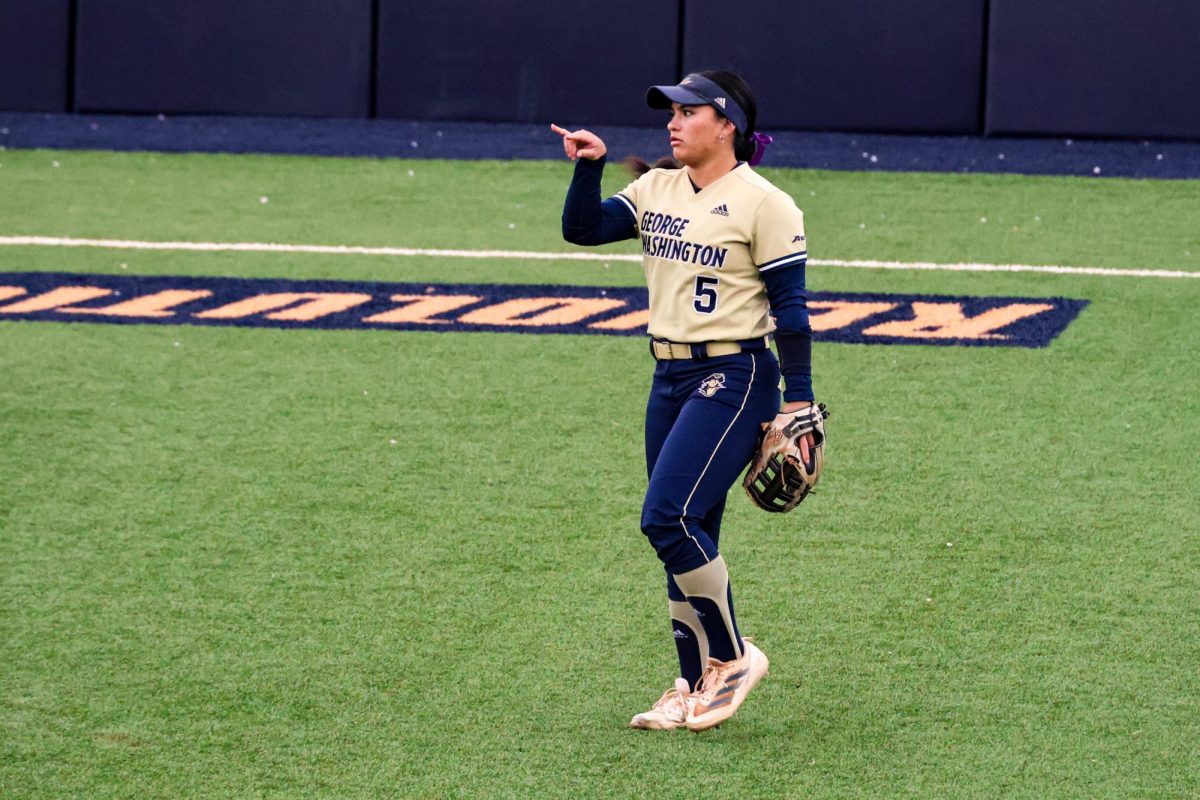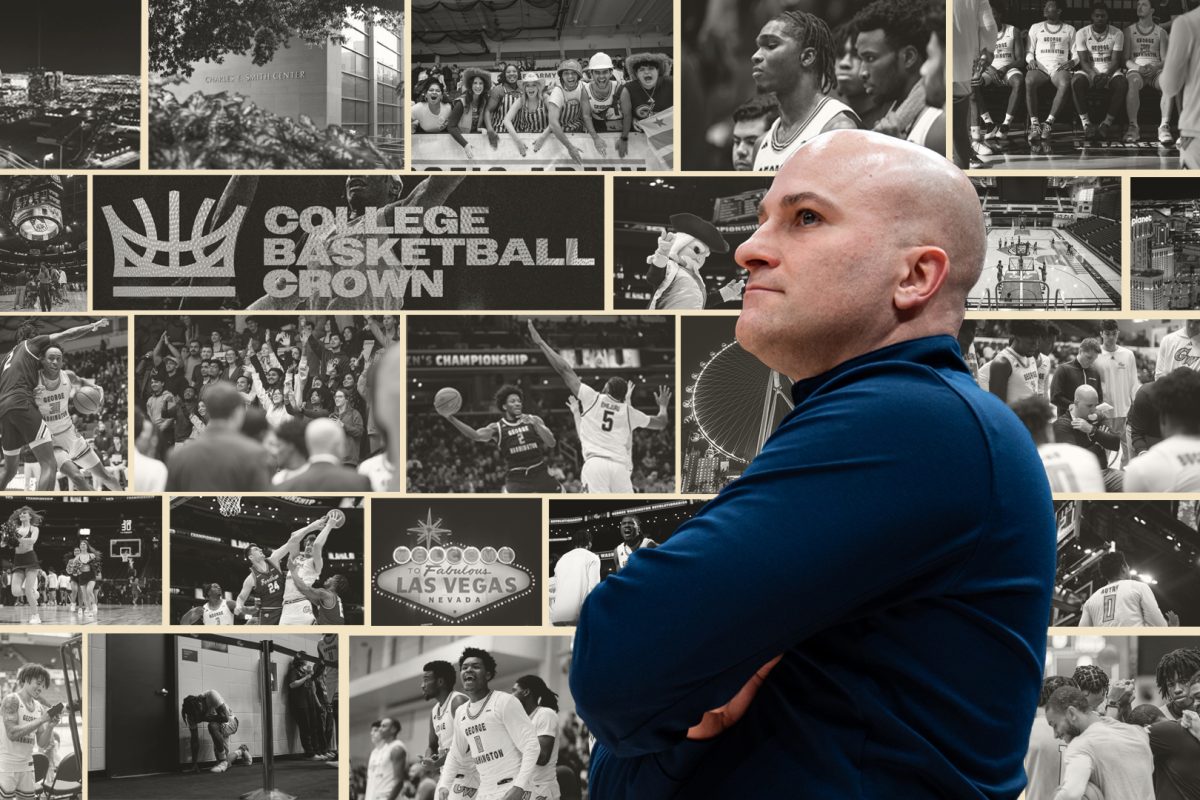In her fourth and final year at Wichita State, Torrie Browning knew she wanted to continue her tennis career behind the bench.
After graduating, she went on to coach as an assistant coach and associate head coach for both men’s and women’s tennis programs. Browning has helmed the women’s team at GW for four seasons.
“Not only was I able to fulfill my dream of competing at a high Division I level, those four years gave me the tools to go on and be successful in life,” Browning said.
She was a decorated student-athlete at Wichita State, holding a winning singles and doubles record and notching 100 career singles wins. She notched 20-plus singles wins each season as a Shocker.
After completing her collegiate career, Browning moved straight into coaching at Norfolk State. She served as an assistant to the men’s and women’s program from 2009 to 2013, which she said helped her improve her coaching skills at the D1 level.
“I believe my experiences of coaching both men and women at the D1 level is a skill set that most female coaches don’t have, so I feel very fortunate to have done both.”
She was promoted to the associate head coach for the women’s program for the 2013-14 season. Her promotion came with increased responsibilities to recruit, arrange travel, set the budget and organize the practice and game schedules.
After her time at Norfolk State, Browning moved on to GW, where she led both the men’s and women’s team as an assistant coach. After men’s and women’s tennis head coach Greg Munoz resigned five games into both programs’ seasons, Browning stepped up to helm the squads.
Under her guidance, the men’s squad captured its third straight Atlantic 10 title, and Browning was named Coach of the Year in the conference. In the same year on the women’s side, GW upset the No. 2 seeded Massachusetts before falling in the semifinal round as the No. 7 seed.
Browning said she has dealt with “challenges” from opposing coaches as a female head, but the men’s squads she oversaw “always respected” her. She added that schools need to give more women the opportunity to coach men’s teams to increase female representation in male athletics.
“I think it also helps if you know what you’re talking [about],” she said. “If you know what you’re talking about you will earn the respect, whether you’re male or female.”
After her interim season, Browning became the official head coach of the women’s program in July 2016. Under her guidance, the women’s program reached its best finish in team history in 2017-18, recording a 13-8 overall record and a 6-1 conference record. The squad also earned its highest A-10 Tournament seed in program history, taking No. 2.
She added that she has generally encountered roadblocks as a coach, which is expected in a profession with college athletics.
“It comes with the job,” Browning said. “But if you know what you stand for and have integrity and values behind your actions, you can’t go wrong.”








